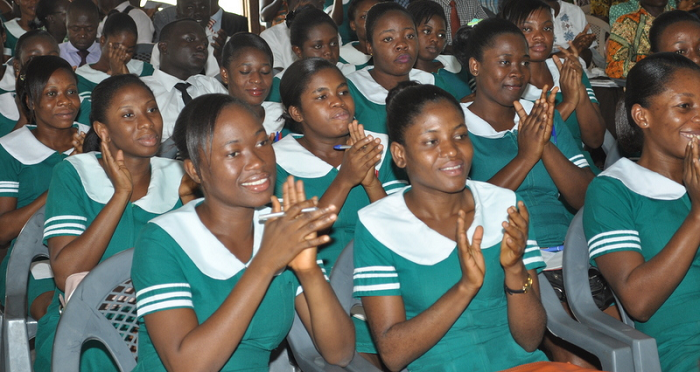The Ghana healthcare landscape is facing potential disruption due to a planned strike by the Ghana Registered Nurses and Midwives Association (GRNMA), a move that has sparked significant dissent within the nursing and midwifery community. Four other prominent professional bodies, namely the Union of Professional Nurses and Midwives, Ghana (UPNMG), the Professional Association of Psychiatric Nurses Ghana (PAPNG), the National Association of Registered Midwives, Ghana (NARM-GH), and the Ghana Registered Midwives Association (GRMA), have publicly denounced the GRNMA’s decision, advocating for continued dialogue and collaborative efforts to resolve the ongoing dispute over the implementation of a Collective Agreement on Conditions of Service.
The dissenting unions argue that the GRNMA’s unilateral decision to strike breaches a prior agreement reached among all nursing and midwifery unions during a meeting held on May 27, 2025. This meeting, aimed at charting a path forward regarding the Collective Agreement, resulted in a consensus to refrain from any industrial action until further internal consultations within each union and a scheduled meeting with the Minister of Finance could take place. The GRNMA’s subsequent announcement of a strike, scheduled for June 2, 2025, has therefore been met with strong disapproval, with the other unions characterizing it as a betrayal of trust and a potentially damaging blow to the unity of the nursing and midwifery profession.
The core issue fueling the discontent within the nursing and midwifery sector is the delayed implementation of the Collective Agreement on Conditions of Service. This agreement outlines crucial aspects of their employment terms, including salaries, benefits, and working conditions. The perceived lack of progress in implementing this agreement has led to frustration and a sense of neglect among healthcare professionals, creating a volatile situation that has now escalated into a threatened strike. However, the four dissenting unions believe that resorting to industrial action at this juncture is premature and counterproductive, emphasizing the importance of maintaining open communication and pursuing collaborative solutions.
The four unions – UPNMG, PAPNG, NARM-GH, and GRMA – have firmly distanced themselves from the impending strike, instructing their members to continue their duties and provide uninterrupted healthcare services to the public. They argue that prioritizing patient care and maintaining the stability of the healthcare system is paramount, and that a strike would jeopardize these critical objectives. Their commitment to continued dialogue and negotiation with the government underscores their belief that a mutually acceptable resolution can be reached through constructive engagement.
The dissenting unions have called for a return to the consensus reached during the May 27 meeting, urging the GRNMA to reconsider its decision and recommit to the agreed-upon process of consultation and negotiation. They see this approach as the most effective way to address the concerns surrounding the Collective Agreement and achieve a positive outcome for all parties involved. Their appeal for unity and collaboration within the nursing and midwifery profession highlights the importance of a cohesive front in advocating for their rights and interests.
This internal disagreement within the nursing and midwifery sector presents a complex challenge for the Ghanaian government. While the GRNMA’s planned strike threatens to disrupt essential healthcare services, the other unions’ commitment to dialogue offers a potential pathway to resolving the impasse. The government’s response to this situation will be crucial in determining whether the dispute escalates further or is successfully de-escalated through constructive engagement and a commitment to addressing the legitimate concerns of healthcare professionals. The ultimate goal should be to ensure a fair and timely implementation of the Collective Agreement, thereby promoting a stable and well-functioning healthcare system that benefits both healthcare workers and the public they serve.


